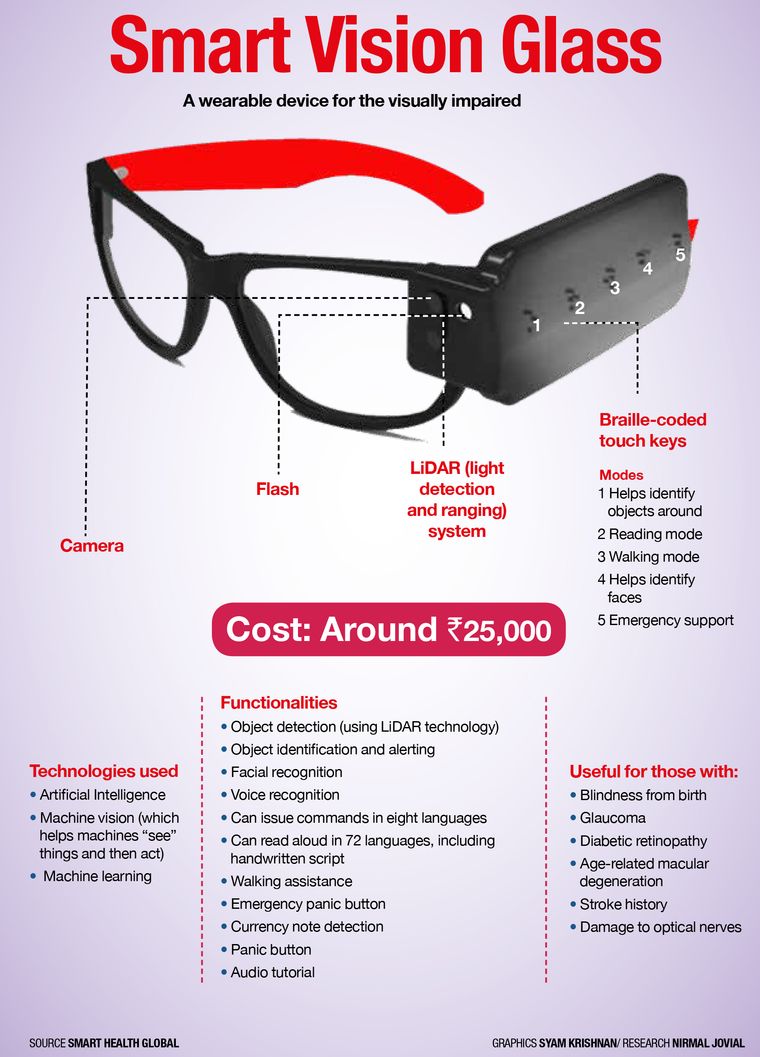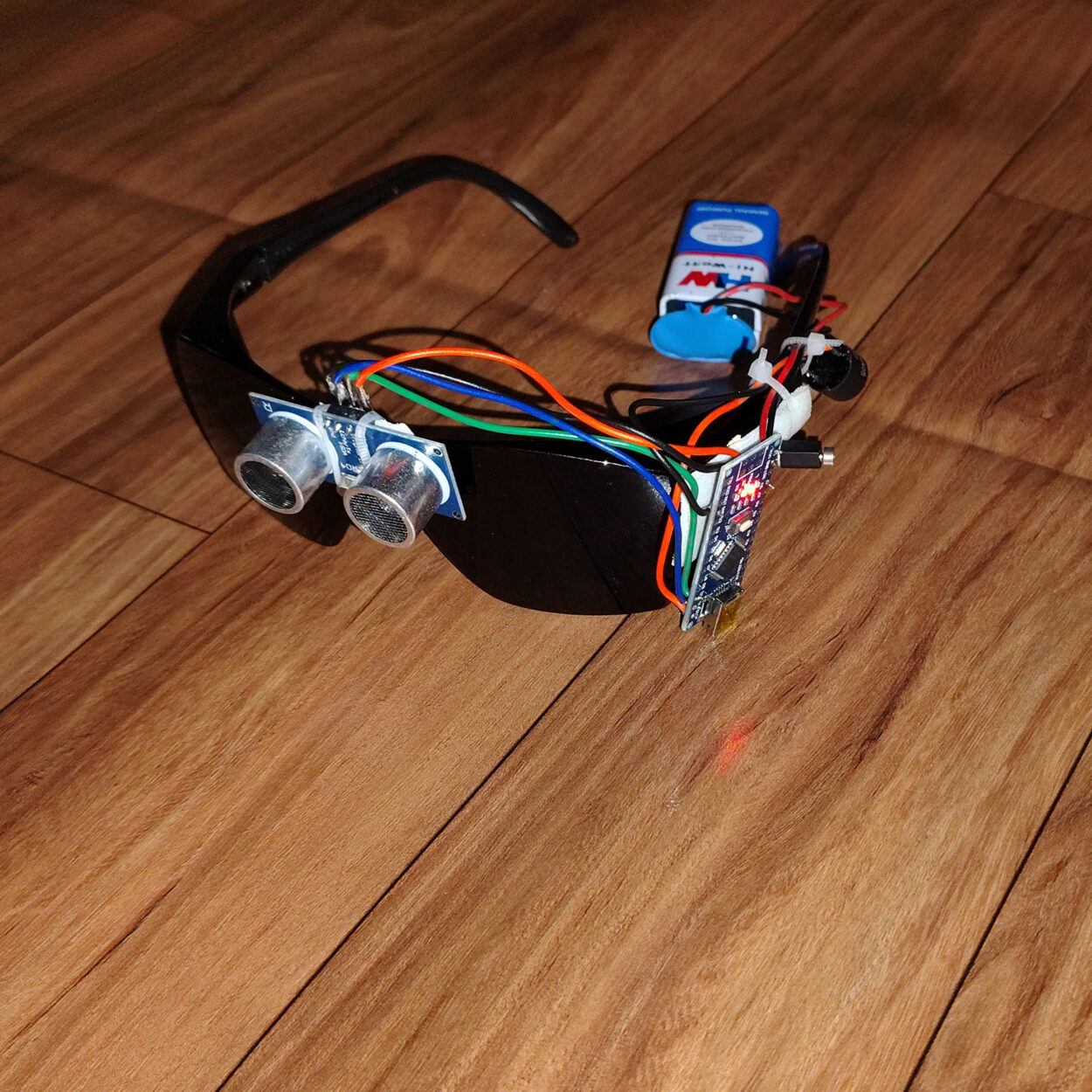Empowering Freedom With Assistive Technology for the Blind
The assimilation of assistive innovation for individuals that are aesthetically damaged or blind stands for a substantial innovation in promoting self-reliance and enhancing quality of life. With a variety of gadgets-- from display viewers to cutting-edge responsive devices-- these innovations not only help with navigating and communication yet also advertise social addition and involvement in various facets of life. As we discover the diverse types of assistive devices and their real-world applications, it becomes clear that the impact is extensive. The evolution of this modern technology increases crucial inquiries concerning access and future growths that necessitate additional assessment.
Understanding Assistive Technology
Although assistive technology has actually evolved substantially throughout the years, its basic function remains the very same: to enhance the top quality of life for people with handicaps, especially those that are blind or aesthetically impaired. This technology includes a wide series of devices and devices that help with independence and capability in everyday tasks.
Assistive modern technology can be categorized right into low-tech and state-of-the-art remedies, each made to meet details demands. State-of-the-art devices frequently include software applications, specialized hardware, and flexible tools that use sophisticated innovation to supply support in numerous contexts. On the other hand, low-tech services might involve daily things that are changed to improve availability, such as magnifiers or tactile markers.
The assimilation of assistive technology into the lives of people that are blind or aesthetically harmed not only promotes autonomy however also fosters social inclusion and involvement in instructional and professional atmospheres. By leveraging these modern technologies, individuals can navigate their surroundings, access details, and communicate successfully, therefore boosting their overall high quality of life. Understanding assistive innovation is critical for specialists, supporters, and caregivers who aim to support individuals in maximizing their possible and attaining better independence.
Kinds Of Assistive Instruments
Assistive tools for the aesthetically damaged and blind are vital devices that enhance daily obeying resolving specific challenges come across by users. These devices can be broadly categorized into three main kinds: optical tools, electronic devices, and sensory tools.

Sensory devices, such as Braille display screens and tactile maps, supply alternate methods to obtain details. Braille displays convert electronic message into Braille, making it possible for individuals to check out touch. Responsive maps supply spatial understanding via increased appearances and lines, enabling far better environmental recognition.
Together, these assistive devices encourage individuals with visual problems to engage even more completely with their surroundings, promoting higher freedom and confidence in day-to-day tasks.

Effect On Every Day Life
The integration of assistive modern technology into the every day lives of people who are blind or aesthetically impaired dramatically enhances their capability to browse and engage with the world around them. Devices such as display viewers, Braille displays, and mobile applications her comment is here promote accessibility to details, permitting users to engage with digital content, interact efficiently, and manage daily tasks individually.
In addition, modern technologies like wise glasses and navigating applications provide real-time assistance in unknown atmospheres, boosting wheelchair and self-confidence. These devices make it possible for individuals to recognize barriers, read indications, and also acknowledge faces, thus fostering a feeling of freedom in public rooms. Furthermore, home automation systems, which can be site here regulated via voice commands, enable individuals to manage their living atmospheres extra successfully, enhancing convenience and safety.
The impact of assistive technology prolongs beyond practical tasks; it advertises social incorporation and emotional well-being. By linking the gap between people and their environments, these modern technologies equip customers to participate fully in area tasks, pursue academic possibilities, and take part in meaningful connections. Ultimately, the advancement of assistive innovation contributes in redefining the opportunities for people who are blind or visually impaired, resulting in an extra available and inclusive culture.
Success Stories and Testimonies

One more powerful endorsement comes from Mark, a recent college graduate who made use of screen analysis software application throughout his academic journey. This technology enabled him to gain access to course products and join conversations, inevitably resulting in his successful change into the workforce. Mark credit reports assistive technology for equipping him to accomplish his profession objectives, stressing its role in leveling the having fun field for individuals with visual disabilities.
Furthermore, neighborhood centers have actually reported enhanced participation in their programs many thanks to the intro of available digital systems. These platforms have actually made it simpler for individuals to attach, share resources, and support each other. These success stories jointly underscore the profound impact of assistive technology in promoting freedom, boosting quality of life, and breaking down barriers for the blind and aesthetically damaged neighborhood.
Future Trends in Assistive Tech
Arising technologies are positioned to transform the landscape of assistive technology for people that are aesthetically damaged or blind. useful content Technologies in man-made intelligence (AI) and artificial intelligence are improving the capacities of devices, making it possible for more instinctive user experiences. AI-driven applications are increasingly able to acknowledge things and read text out loud in real-time, providing customers with important info concerning their environments.
Furthermore, developments in wearable innovation are developing new opportunities for self-reliance. Smart glasses furnished with increased fact attributes can overlay important details onto the individual's visual field, promoting navigation and interaction with the setting. Moreover, the assimilation of Net of Things (IoT) devices is simplifying availability in clever homes, permitting users to regulate appliances and receive notices through voice commands or tactile user interfaces.
The growth of braille displays and tactile feedback systems is also on the surge, promoting accessibility to electronic content and improving communication. As these innovations remain to progress, they assure to boost daily living, academic opportunities, and work leads for people with visual disabilities. Continuous cooperation between engineers, users, and advocacy groups will certainly be crucial in guaranteeing these technologies fulfill the needs of the area effectively.
Verdict
In conclusion, assistive innovation plays a critical role in improving the freedom of people who are aesthetically damaged or blind. By providing important devices and resources, these technologies facilitate enhanced navigation, communication, and accessibility to info, thus promoting freedom and confidence. The transformative impact of assistive tools not only advertises efficient communication with the environment however likewise urges social inclusion and engagement in various elements of life, inevitably empowering individuals to prosper within their areas.
The assimilation of assistive innovation for people that are visually impaired or blind represents a considerable innovation in fostering self-reliance and enhancing quality of life.The integration of assistive modern technology right into the lives of individuals that are blind or visually harmed not only promotes autonomy but likewise fosters social inclusion and participation in expert and academic environments. Ultimately, the improvement of assistive technology is critical in redefining the opportunities for individuals that are blind or aesthetically damaged, leading to a much more comprehensive and obtainable society.
Numerous people who are blind or aesthetically impaired have actually shared motivating success tales that highlight the transformative impact of assistive technology on their lives.In verdict, assistive modern technology plays a critical function in boosting the independence of individuals who are aesthetically damaged or blind.
Comments on “Top Braille Displays and Notetakers to Enhance Accessibility for the Blind”